Hair Serum Benefits: 5 Reasons To Get Shinier, Frizz-Free Hair
Serums can help you meet your ultimate hair goals and protect your locks when used correctly.
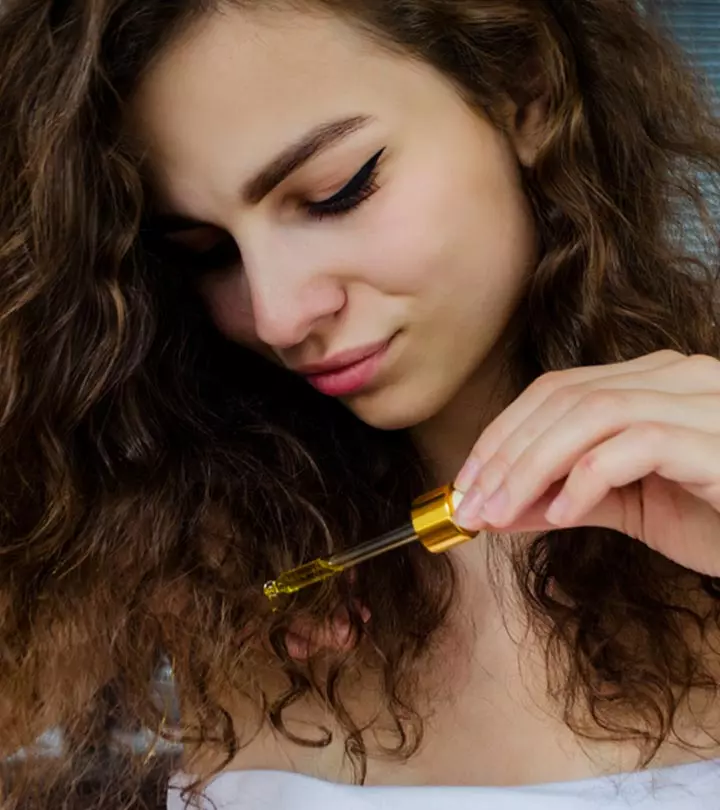
Image: Shutterstock
Hair serums are amazing products to have on your cosmetics shelf, thanks to their all-round benefits. They help smoothen your hair, eliminate frizz, add shine, and act as a shield against harsh environmental aggressors like heat, dust, and pollution. In addition, they are very easy to use and are typically applied after washing the hair and before styling it. In this article, we will learn more about these serums, their types, how to prepare them at home, and how they differ from hair oils. Keep scrolling.

In This Article
What Is A Hair Serum?
Hair serum is a silicone-based liquid product that coats the surface of your hair. Unlike hair oil, it does not penetrate the hair cuticles or cause changes to the hair structure. Instead, it enhances the curliness and smoothness of the hair (1). Also, it smooths frizz, adds shine, and protects your hair from environmental aggressors.
Thesiliconei A rubber-like polymer used in cosmetics and hair products to lock in moisture in the skin and smoothen the hair. in hair serums helps strengthen and brighten your hair. It also helps reduce hair loss (2). Silicone-based serums have a lower pH leveli It refers to the “potential of hydrogen”, which is a scale used to measure the acidity or basicity of a substance. to minimize hair damage (1). Dimethicone and polysiloxane, used in most hair care products like serums, are known to protect the hair shaft and glue cuticle filers together to stop heat damage (1), (3). The active ingredients and amino acids in the hair serums penetrate deep into your hair and minimize hair breakage. Furthermore, hair serums provide great lubrication to the hair, which makes it easier to manage.
Hair serum provides a ton of other benefits that are listed in the next section.
Key Takeaways
- Hair serums protect your hair from the damaging effects of the sun, detangle your hair, and hydrate it.
- It is very important to find the right hair serum for your hair type that you can apply after your hair wash.
- Hair growth serum and straightening hair serum are some types of hair serums you can apply to get frizz-free, stronger, and thicker hair.
Benefits Of Hair Serum
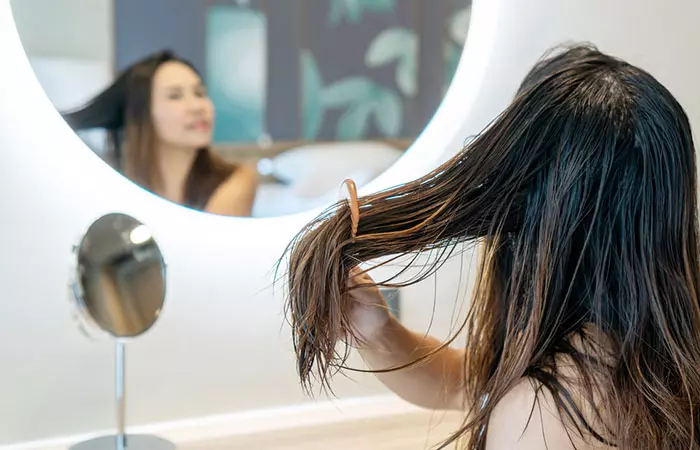
- Hair serum makes your hair shinier and healthier and reduces tangles.
- As the serum reflects light, it makes hair look lustrous and healthy. It also protects your hair from dust and humidity.
- Its low pH level prevents swelling and holds the hair fibers together, thus preventing damage (1).
- Hair serum also protects your hair from the damaging effects of the sun, pollutants, other harmful chemicals, and heat styling tools.
- It helps moisturize dry hair or hair that has been damaged from color.
A blogger tried a DIY hair serum with essential oils and shared her experience in a blog post. She says, “I have been using this homemade hair serum for about a month now and what can I say, I love it!…. I must say that this serum keeps my flyaway hair manageable a whole lot and makes my hair ends really soft. I really like the conditioning properties it gives and I would say this is a keeper for me (i)”.
Now, let’s answer the question that is probably on your mind.
How Do You Know Whether You Should Use A Serum?
If you are using styling tools like curling or flat irons regularly, or if you feel that your hair is missing that bounce, then give it some extra moisture and nourishment in the form of hair serum. Your hair may look dull and brittle when it loses all the moisture. Also, it needs a bit of revitalization if you are constantly playing a tug of war with your hairbrush.
Most people use a hair serum to prevent dry and damaged hair. Some start using it once their hair turns dull or tangled, while others might use it to protect it from the heat from hair styling tools. The following steps should help you pick and use the right hair serum.
How To Use A Hair Serum?
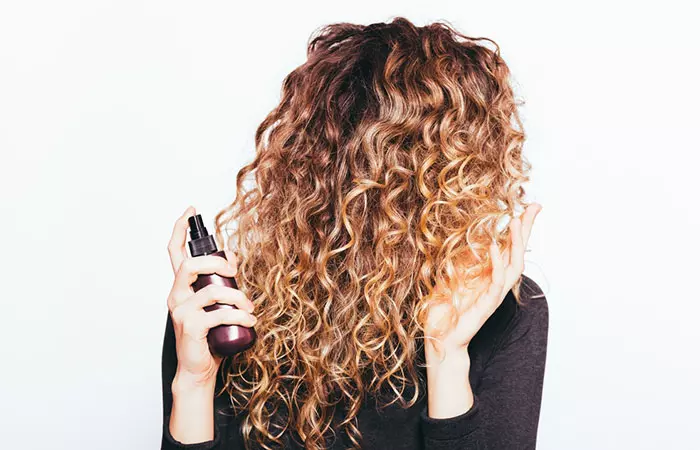
1. Find The Perfect Product For Your Hair Type
- Like any other grooming product, every brand of hair serum uses different ingredients that may benefit certain hair types and do very little for others.
- You must find the perfect product best suited for your hair type. You must also be aware of the ingredients used. This could often mean experimenting with a few products before finding the right one. Also, there is a misconception that people with fine hair cannot use any serums because serums will make their hair flat. But, in reality, those with fine hair also can use serums with lighter formulas.
- If you are one who styles their hair often, then you should opt for the products that also act against the heat damage from styling tools like curling or flat irons and blow dryers
- Always choose hair serums with keratin as an ingredient if your hair is already damaged. It can help put protein back in the hair.
- Hair serums can also be used as quick touch-ups on your hair any time throughout the day if your mane is looking dull and dry.
2. Wash Your Hair Thoroughly Before Application
- One must remember that hair serum is only applied to shampooed hair. Unlike hair mousse or hair sprays, hair serum is primarily a source of nourishment for your hair, even though it does help to style and detangle it as well. The primary purpose of hair serum is to protect your hair against dust and grime. Hence, applying it on unwashed hair will defeat the purpose.
- Often, popular brands manufacture a complete range of hair grooming products that include shampoo, conditioner, and hair serum that are made to complement each other. Applying hair serum before washing your hair is the optional step. Some people find that it can help reduce frizz and dryness.
- If you are trying out a hair serum for the first time, use one that comes with a compatible shampoo and conditioner in the same hair care range. Shampoo your hair thoroughly, follow it up with a conditioner, and finally apply the hair serum.
3. How To Apply Serum To Your Hair
- Depending on the length and density of your hair, take two to six drops of the hair serum and rub it between your palms.
- Hair serum is best applied on just-washed hair, so make sure your hair is towel-dried or slightly damp.
- Flip your hair forwards and start applying the serum on the hair that falls over your face, going upwards from the tips of your hair. Massage the tips, as the hair serum works well on split ends. Flip the hair back again, take two to four more drops of the serum, and massage it well, starting at the back and moving forward to the front of the hair.
- Once done, you can take a few more drops and apply the serum all over your hair for efficient application.
- Hair serums work best on damp hair. If you want to apply hair serum on your damp hair, then remember that blow-drying your hair is absolutely essential.
4. Post-Application Hair Care
- Once you have applied the serum effectively to your hair, brush it downwards. This will help you easily detangle your hair.
- After applying the serum, make sure you blow-dry your hair until it is completely dry. This is important because damp hair can cause dust or grime to stick to your hair and scalp.
- If you use a hair straightener often, it is best to first apply serum and then go for the straightener. The serum will also protect your hair from any damage caused due to overheating and the resulting breakage.
- Make sure to brush your hair gently to remove any knots or tangles in the hair.
There are different types of hair serums available in the market for your hair type and purpose. Listed below are all the types of hair serums. Scroll down!
Types Of Hair Serum
1. Intense Moisturizing Hair Serum
Intense moisturizing hair serum is suitable for people who have unmanageable hair with split ends and flyaways. It helps to nourish, soften, and rehabilitate dry hair and add shine to your hair without making it greasy. This type of hair serum also protects your hair from sun rays and offers essential moisture to the hair.
2. Straightening Hair Serum
Hair straightening serums are specially formulated for hair styling. They help diminish frizz while straightening the hair. They are formulated with humidity-resistant formulas and offer super-straight, frizz-free, and smooth hair that lasts for a long time. You can also find hair serums for specific hair problems like split ends.
3. Hair Growth Serum
This type of serum is formulated with active ingredients that moisturize your scalp and improve the blood flow, which in turn, improves the scalp health. It also helps prevent hair breakage and improve hair strength along with encouraging the hair follicles to grow thicker and shinier hair.
 Quick Tip
Quick TipHair serums can protect your hair from heat damage, reduce frizz, and also minimize dryness. However, you should consider the following points while choosing the right serum for your hair type.
How To Pick The Right Serum For Your Hair Type

Always go for a good brand even though it may cost a little more. Trying to cut down on the cost may not be a good idea when you want the desired results for your hair.
- While applying hair serum, make sure you don’t rub it into your scalp. Instead, comb it lightly through your hair, preferably with your fingertips or a comb.
- If you feel your hair is drying out unusually fast after using the serum, try switching the product. It could be possible that the product you have been using is not suitable for your hair type. Switching to another brand may resolve the issue.
- While you are using the hair serum, try other new hair products, like a new shampoo and conditioner, to understand what combination works best for your hair.
- Using too much of anything is bad, and that holds true for hair serum as well. It is good to use the serum in moderate quantities. Try not to use it every day. If you need to use it every day, do so in small quantities..
- Apply hair serum when your hair is damp or towel-dried and not when it is dripping wet.
- Do not use hair serum repeatedly without washing your hair. This may lead to greasy hair and dandruff. Make sure your hair is washed and clean before using a hair serum.
- Always look for a hair serum based on your hair type. Look for ingredients that are specially designed for specific hair types. If you have damaged hair, opt for jojoba or lavender oil-enriched hair serums. These types of hair serums are light and help to detangle your hair.
- For thick hair types, hair serums that are enriched with Morrocan argan oil work great. For curly hair types, look for ingredients like jojoba, sweet almond, marula, and argan oils for extra hydration.
- If you like to experiment with your hair colors or your hair is chemically treated, then opt for a hair serum with green tea extracts and coconut oil as active ingredients.
 Quick Tip
Quick TipOverusing hair serum can make your hair look limp rather than voluminous. Hence, limit the amount of serum while using. Find out how much is sufficient for your hair type in the next section.
How Much Serum Should You Use?
Remember that a little hair serum goes a long way. No matter how thick or long your hair is, applying too much hair serum can make your hair look limp rather than lustrous. You should only apply a pea-sized amount for fine hair, dime-sized amount for medium-length tresses, and a quarter-sized amount for thick and long hair.
Learn how to make a serum that helps nourish your hair at home in the next section.
Hair Serum For Different Hair Types: Recipes
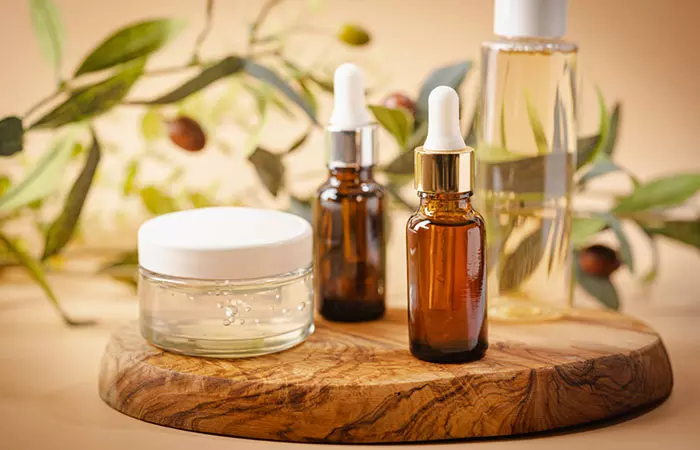
Here are three simple and effective hair serum recipes that are good for dry, oily, and brittle hair types. As these contain natural and essential oils, they will help nourish your hair.
For Oily Hair
Those with oily hair should go for a light oil as a base for making their hair serum. Oils like coconut oil and jojoba oil are lighter than other oils. Hence, they can be perfect for oily hair and scalp. The excess oiliness of hair is caused by the excess sebumi A substance made up of fats and oils secreted by the sebaceous glands to keep the skin naturally hydrated. produced by the sebaceous glandsi Microscopic glands in hair follicles underneath the surface of the skin that produce oils to keep the skin hydrated. , which makes your hair look greasy all the time. Therefore, you should choose an essential oil that can control these glands. Lemon, peppermint, and geranium essential oils are light and suit oily hair the best.
Process
- Mix a few drops of any essential oil mentioned above with 100 ml of coconut or jojoba oil.
- Shake well and store this serum in a dark place in a tight screw-type bottle.
- Apply this oil to dry or damp hair to retain moisture and prevent excess oiliness.
- If you do not want to use it during the day (as it may make your hair look oily), you can always use this serum at night. Massage this serum all over your hair and scalp every night before going to bed.
For Dry Hair
Those with dry hair are usually prone to split ends and breakage. Thick, concentrated, and moisturizing oils like castor oil should be selected as the serum base. For dry scalps, essential oils like rosewood and lavender work well.
Process
- Mix a few drops of any of these essential oils with 100 ml of pure castor oil.
- Shake well and store in an airtight bottle.
- If you feel that the consistency of the castor oil is very thick, you can add 20 ml of coconut oil to lighten the consistency.
- A daily massage with this serum on a dry scalp can result in beautiful, lustrous, and nourished hair without any split ends or dryness.
For Brittle Hair
A concoction of lavender oil and aloe vera gel not only helps to restore health back in damaged hair but is also a wonderful remedy for brittle hair and promotes healthy hair growth.
- Pour a cup of water into a pan and bring it to a boil.
- Add a tablespoon each of dried fenugreek and fresh basil leaves to the boiling water.
- Heat this mixture for another 15 minutes. Strain it and let it cool down.
- Then, add aloe vera gel to this mixture and mix.
- Add 100 ml of lavender oil to the mixture.
- Shake well and store in an airtight bottle.
- Apply this serum every alternate day on damp hair or just before hitting the bed to make brittle hair stronger.
If you use hair serum in limited quantities, it won’t cause any side effects. But, if you use too much hair serum, it can cause hair fall in the long run. Scroll down to know more.
Does Hair Serum Have Side Effects?
While there are various benefits of hair serums, there are also many disadvantages of hair serums. The chemicals in hair serums, such as silicone, can cause adverse effects if you use them for a long time. Too much use of serum can cause severe hair fall and breakage. Some of them may dry out your mane and cause irritation, inflammation, hair loss, rash, or itchiness. If you want to stay away from any of these side effects, then reduce the frequency of application.
Now, let’s answer a couple of frequently asked questions about serum!
What Is The Difference Between Hair Oil And Hair Serum?

Hair oil and serum may have similar textures but are not the same. The former is formulated to penetrate past the hair cuticles into the cortex of the fiber and is mainly used to nourish and improve hair health. Hair serum is used as a styling product to protect your hair, increase its shine, and reduce frizz.
Can You Use Hair Serum Daily?
Hair serums are not recommended for everyday use. Limit the use of serums to avoid hair damage like breakage and hair fall. But, if you have extremely unmanageable hair, you can use an oil-based serum every day.
Explore more about hair serum vs hair oil to understand the difference between the two products and ways to use them.
Another such confusion arises regarding the comparison between leave-in conditioner and hair serum. Find out which works best for what situation in the next section.
Is Leave In Conditioner Or Serum Better?
The choice between leave-in conditioner and serum depends on your hair type and needs. Leave-in conditioners are ideal for adding moisture and detangling the hair, making them great for dry, frizzy, or curly hair. Serums, on the other hand, are lightweight and provide shine, which suits fine or oily hair. Consider your hair texture and concerns when deciding between the two. You can also use both: a leave-in conditioner for hydration and a serum for added shine and frizz control. Experiment to find the best combination that leaves your hair looking healthy and well-groomed.
Infographic: When To Use Hair Serum – Tips To Follow
‘Adding a serum to your hair care routine improves your tresses’ appearance, health, manageability, feel, and shine. However, there are some crucial pointers to remember when using hair serums. Check out the infographic below to learn when you should use a hair serum, among other tips.
Some thing wrong with infographic shortcode. please verify shortcode syntax
Hair serums are quickly becoming a must-have hair care and style essential. They protect your hair from heat damage and increase hair shine. To choose the best hair serum for yourself, keep your hair type, texture, and hair issues in mind. These serums coat the hair strands and protect them to enhance your curl structure and shine. They contain ingredients that benefit your hair greatly. Use these serums before styling your hair to ease the styling process. However, keep in mind using too much hair serum may lead to weighed down hair, hair breakage, and hair fall in some cases.
Frequently Asked Questions
Can we apply the serum on oiled hair?
To get the most out of your hair serum, it’s best to apply it to clean, dry hair. This will help to control frizz and keep your hair looking smooth and healthy. While it may be tempting to apply serum to oiled hair, it won’t have any benefits. By applying it after washing and drying your hair, you’ll be able to enjoy the full benefits of your hair serum and keep your locks looking their best!
Should I wash my hair after applying serum?
You have the choice to wash your hair after applying serum if you find it too greasy, but you do not need to. Generally, serum is designed to keep your hair smooth and healthy without leaving it oily.
Is hair serum safe for colored or chemically-treated hair?
Yes, hair serum can be used for colored and chemically treated hair as a color-protecting treatment since it is free of chemicals.
Can hair serum be used in conjunction with other hair products?
You can use hair serum together with leave-in conditioners and other styling products after a hair wash to give your hair a finishing touch.
How long does the effect of hair serum last?
Hair serums should be used after every hair wash and not frequently. Its effects last until your next wash.
Illustration: Serum For Hair: Benefits, How To Use It, And Side Effects
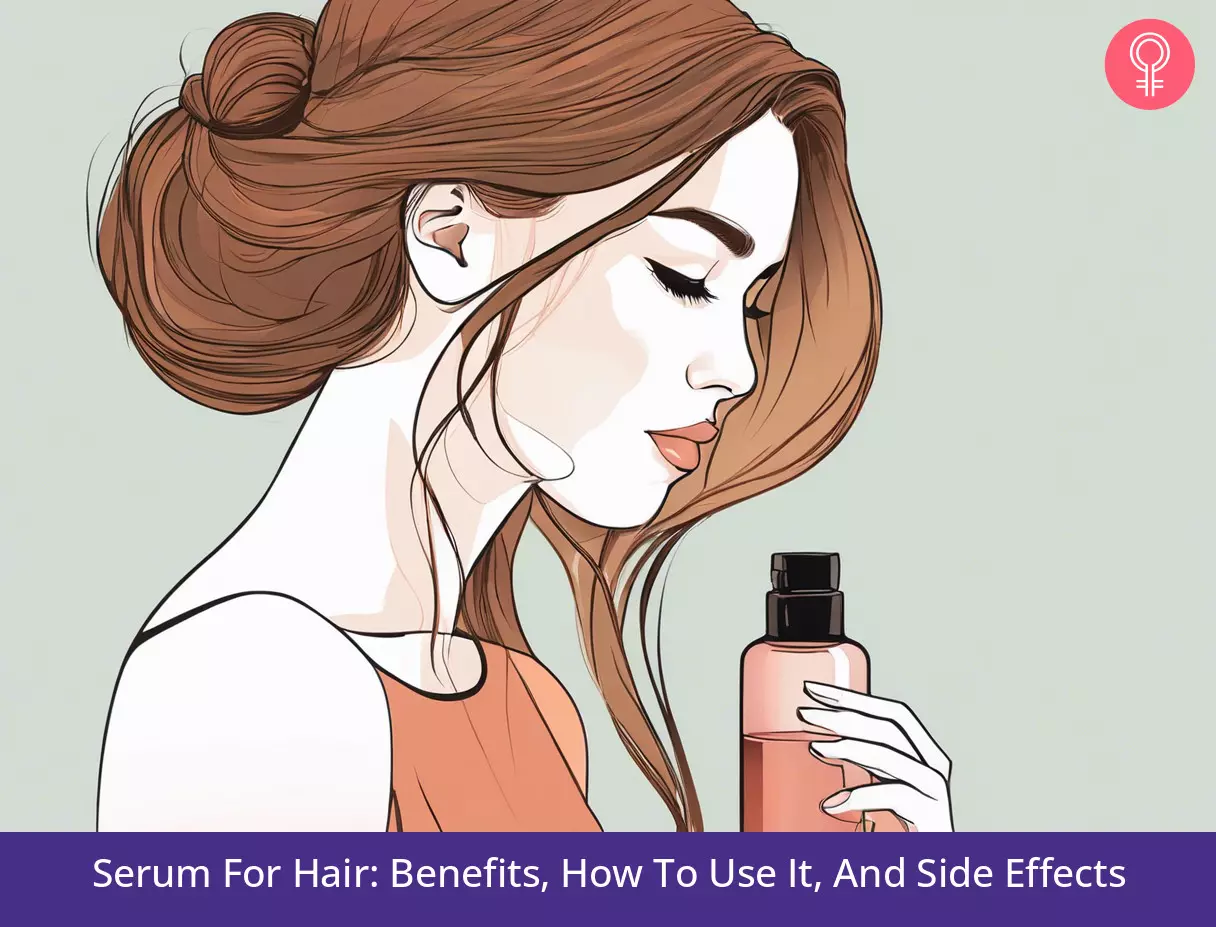
Image: Stable Diffusion/StyleCraze Design Team
Discover the secrets of using serums for healthy hair growth and thickness. Click on this video for the proper techniques and application methods for optimal results.
Personal Experience: Source
StyleCraze's articles are interwoven with authentic personal narratives that provide depth and resonance to our content. Below are the sources of the personal accounts referenced in this article.
i. DIY: Homemade Hair Serum using Camellia Oil and using it neat for my skin
https://myorganicjourney11.blogspot.com/2011/08/diy-homemade-hair-serum-using-camellia.html
References
Articles on StyleCraze are backed by verified information from peer-reviewed and academic research papers, reputed organizations, research institutions, and medical associations to ensure accuracy and relevance. Read our editorial policy to learn more.
- Evaluation of leave-on hair serum containing higher amount of silicones
https://www.rjpbcs.com/pdf/2016_7(6)/%5B343%5D.pdf - Use of silicon for skin and hair care: an approach of chemical forms available and efficacy
https://www.ncbi.nlm.nih.gov/pmc/articles/PMC4938278/ - Hair Cosmetics: An Overview
https://www.ncbi.nlm.nih.gov/pmc/articles/PMC4387693/
Read full bio of Dr. Vindhya L Veerula
Read full bio of Arshiya Syeda
Read full bio of Ramona Sinha
Read full bio of Medha Deb







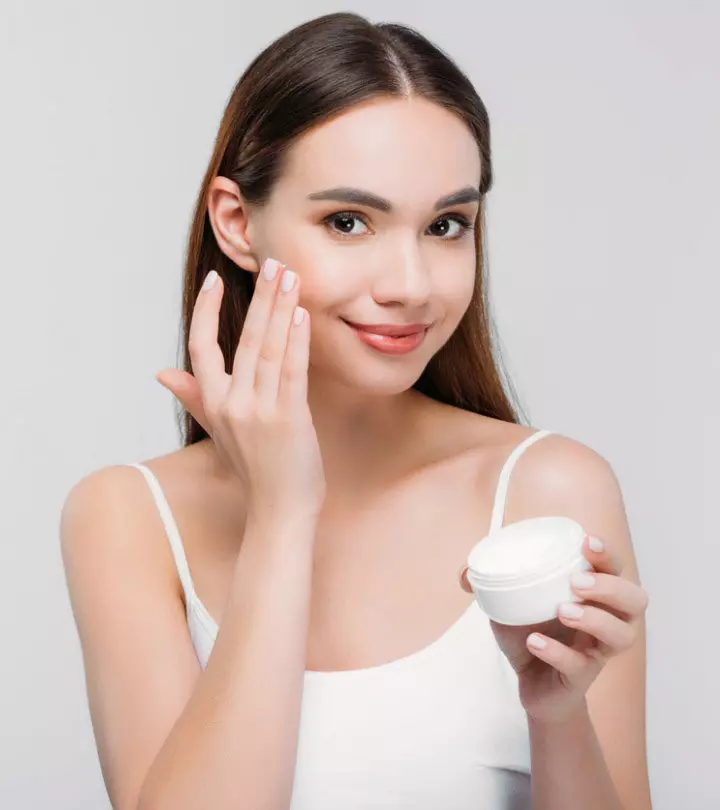
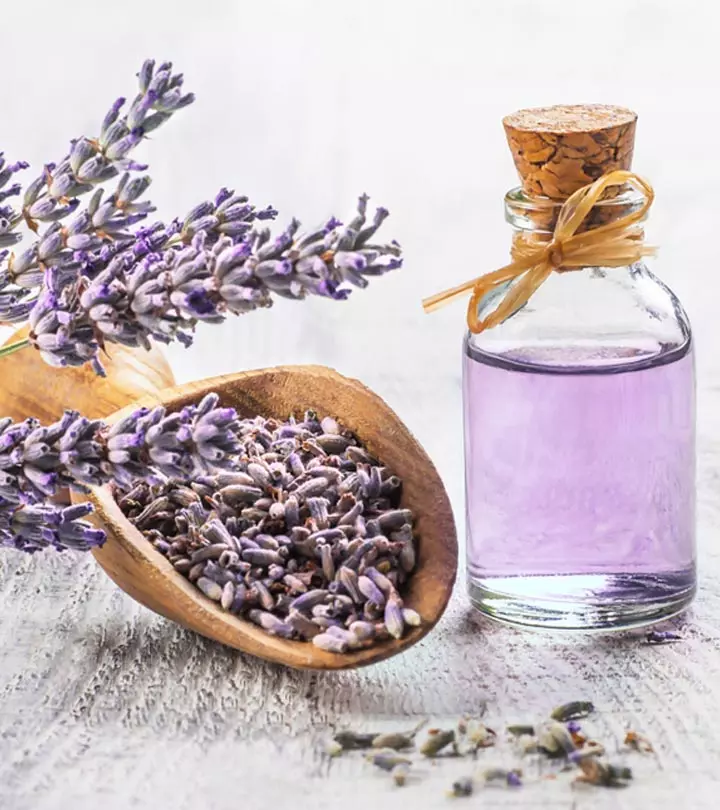
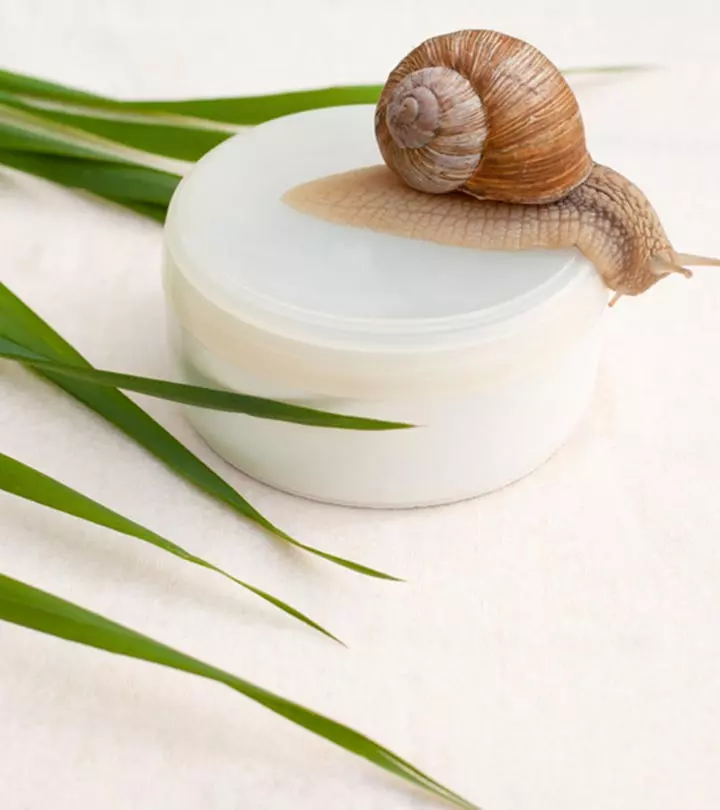
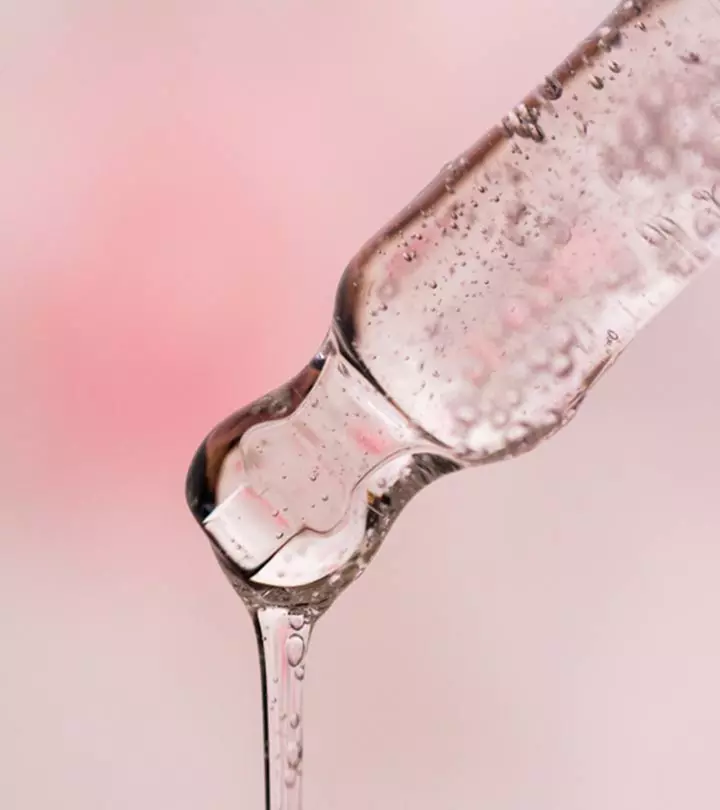
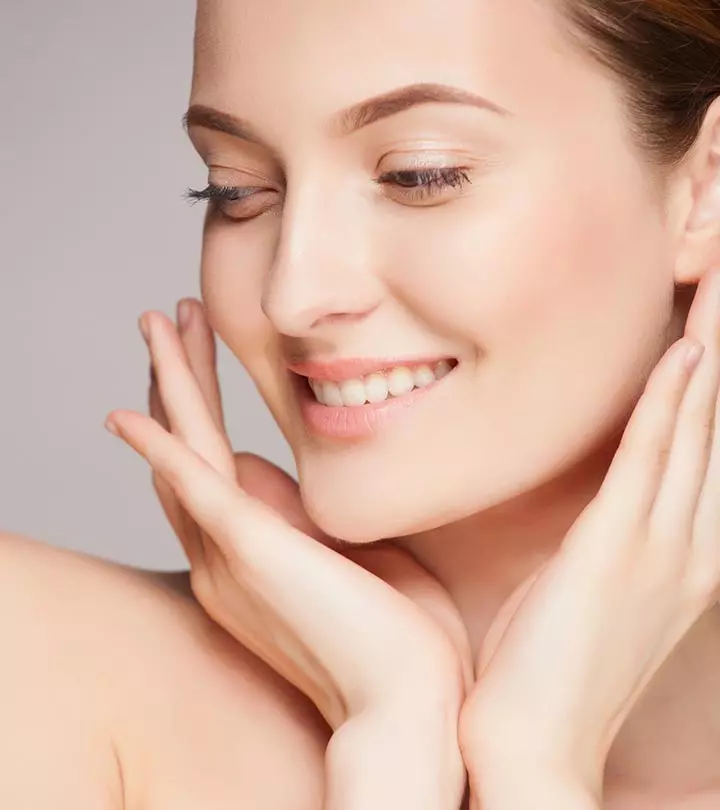
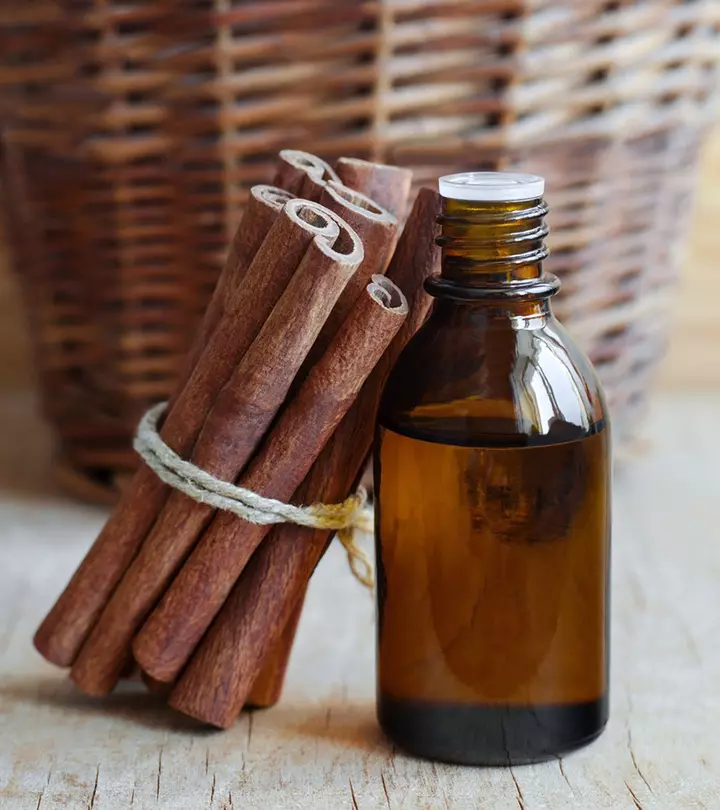
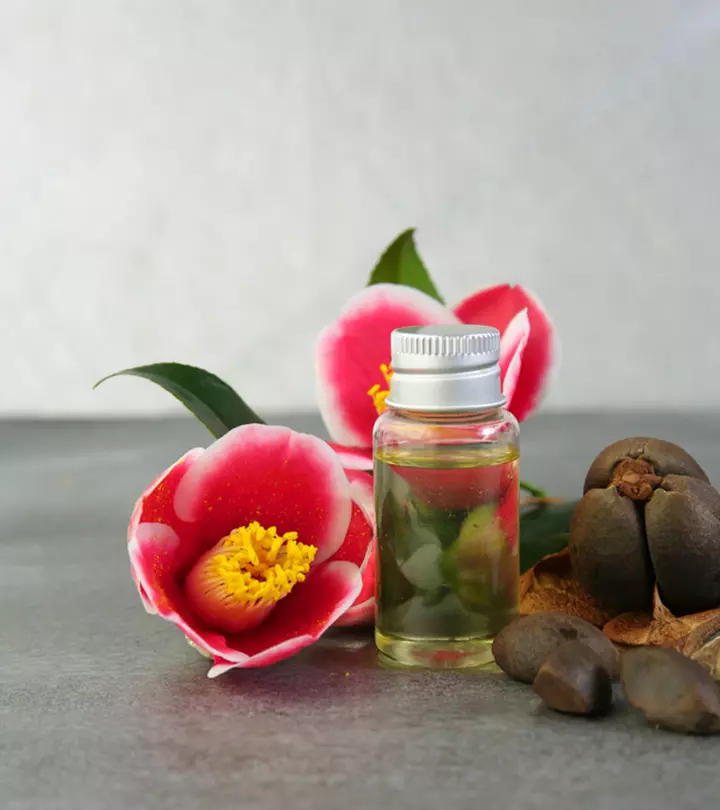
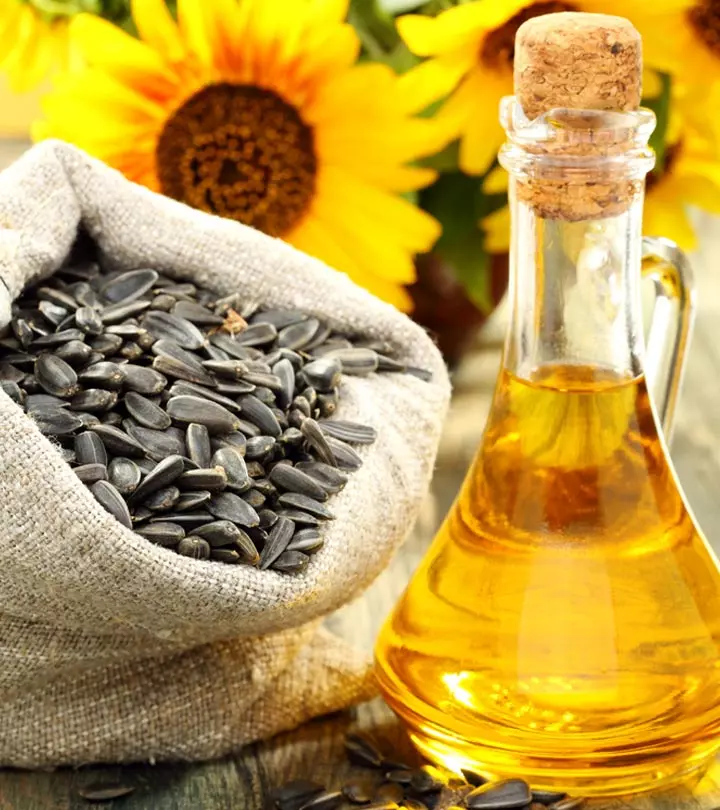

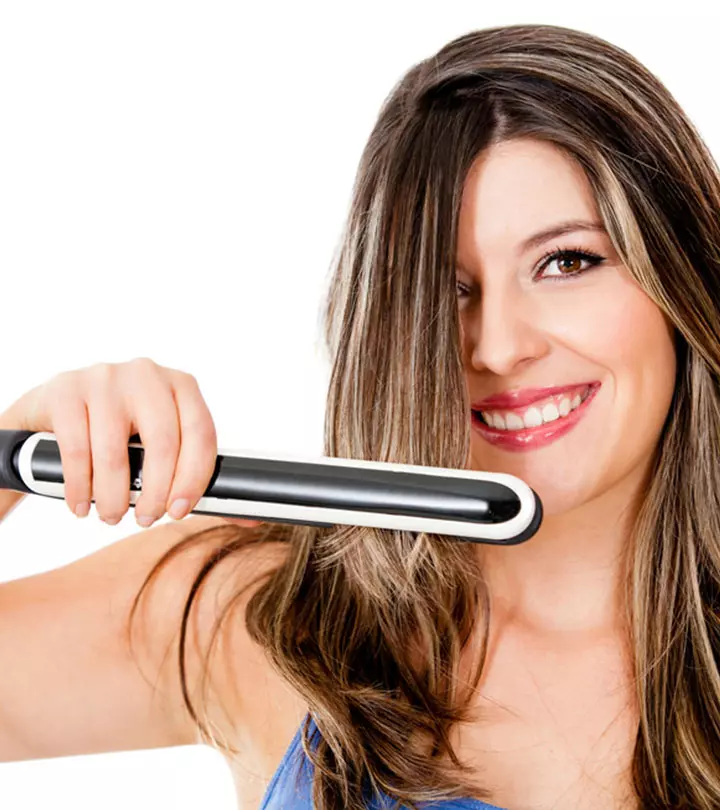
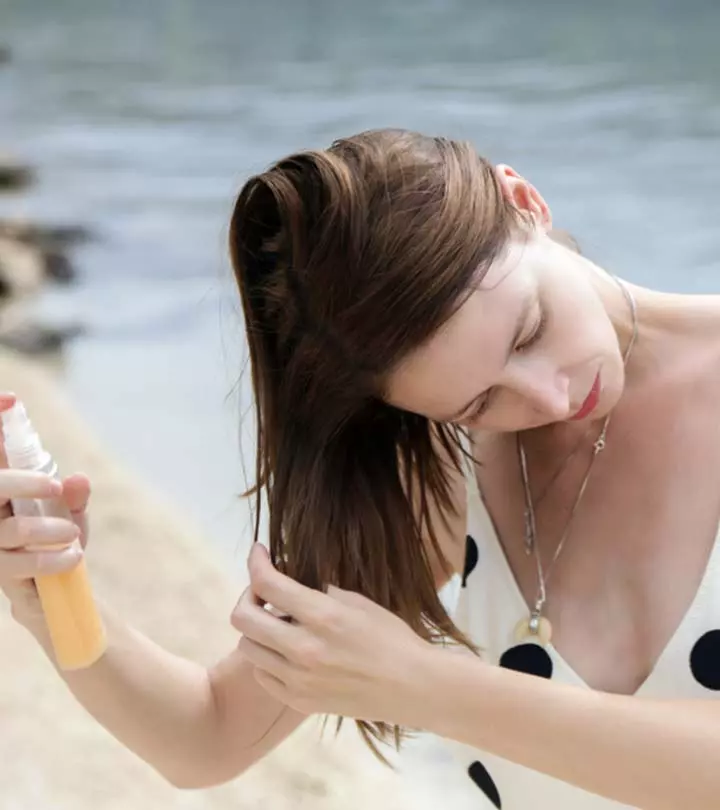
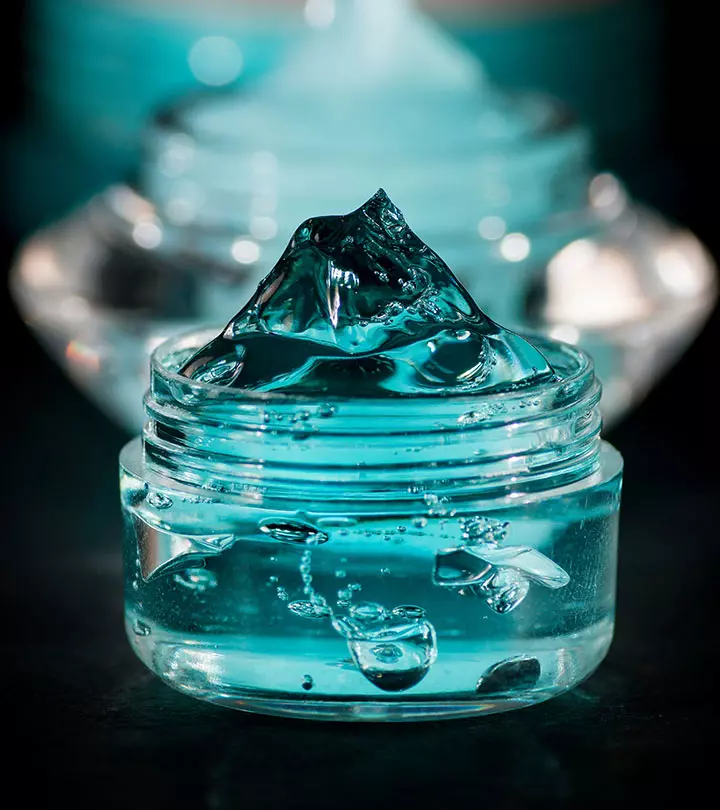
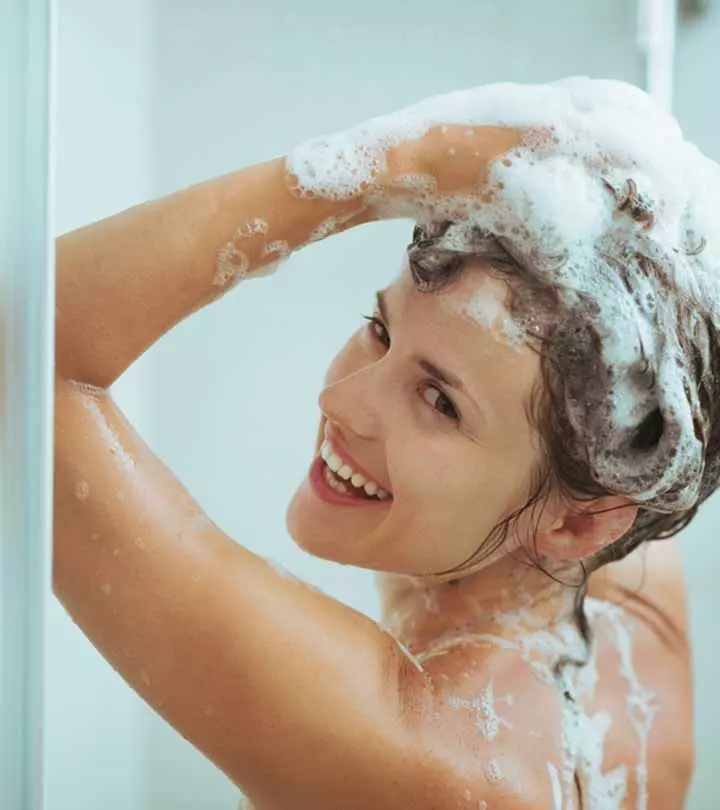

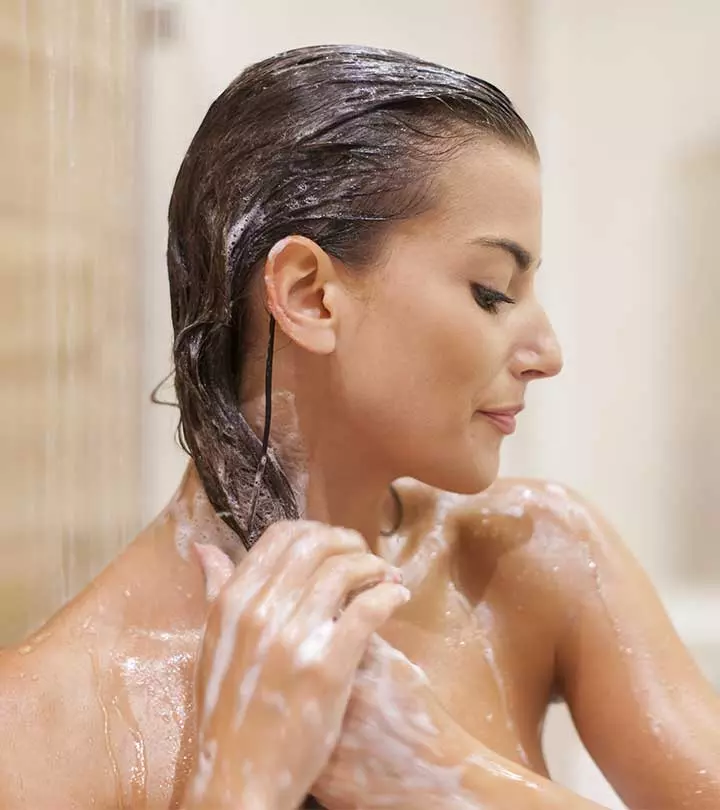
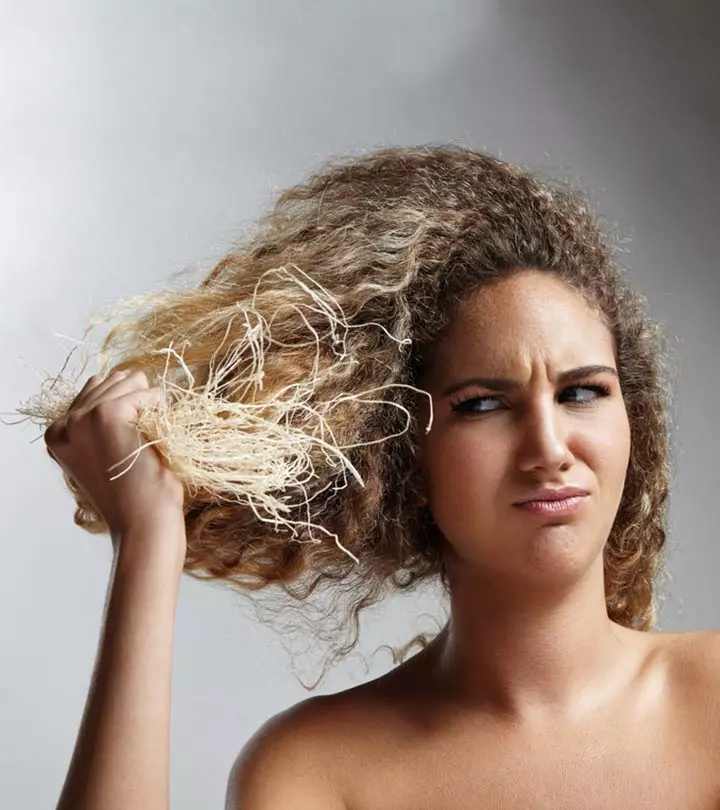
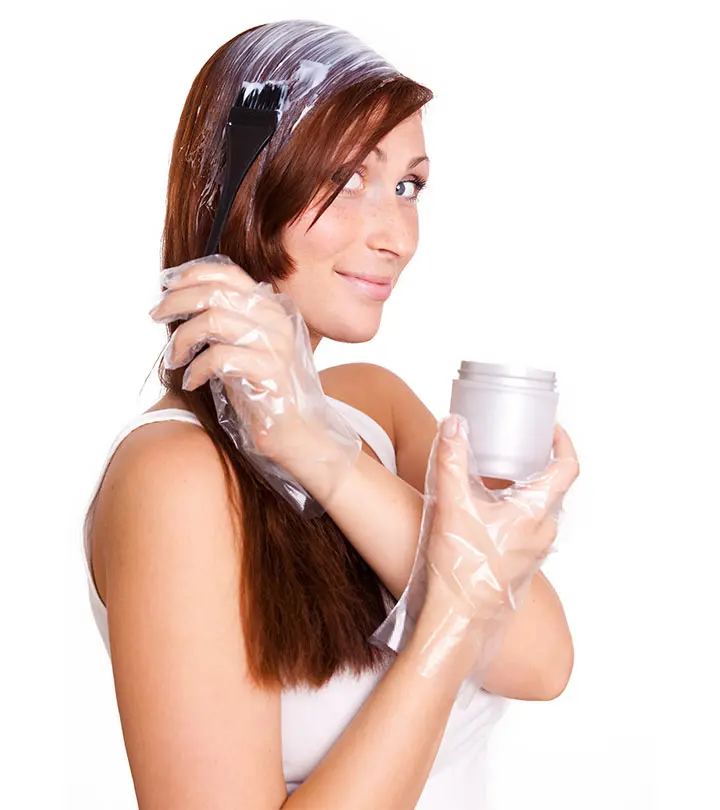
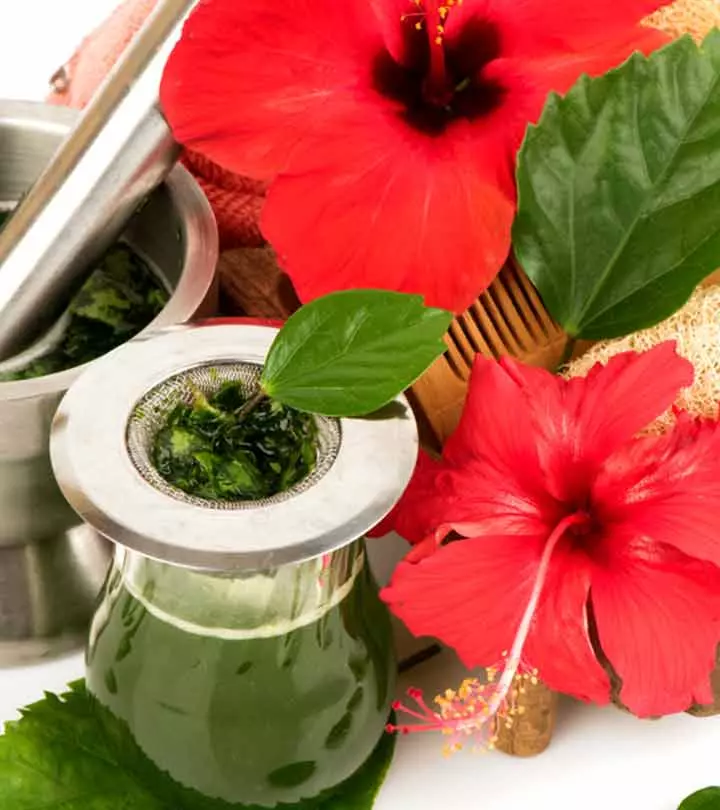
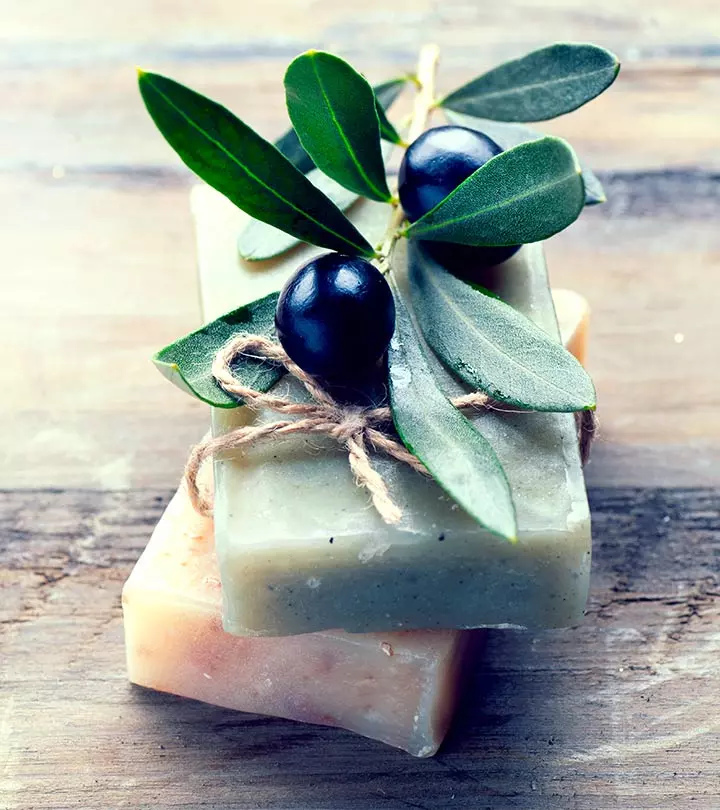
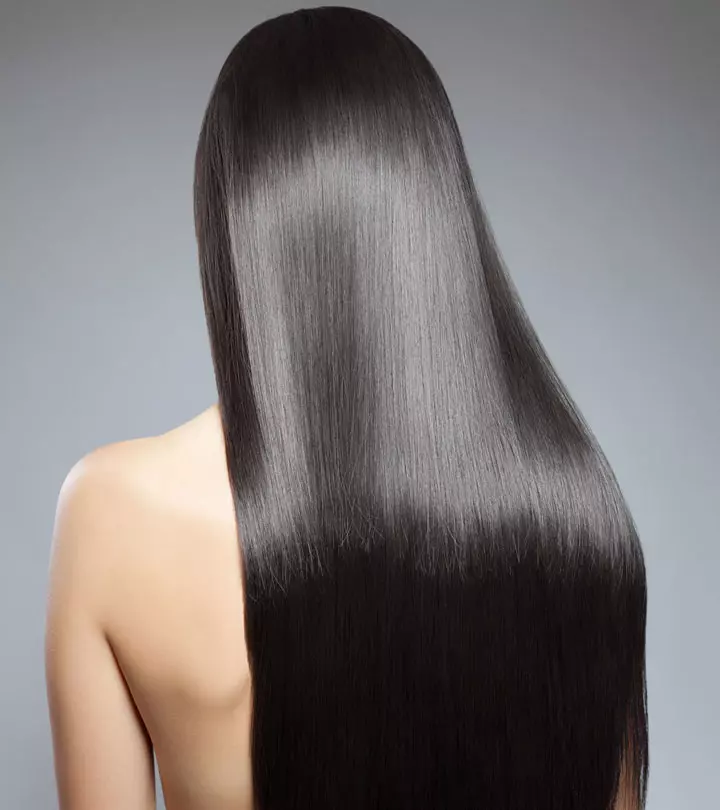
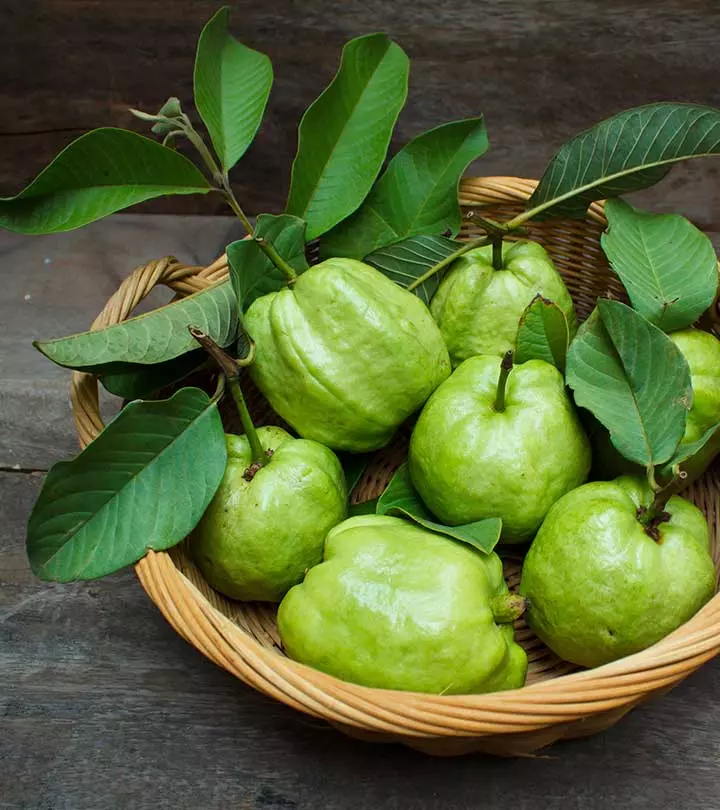
Community Experiences
Join the conversation and become a part of our empowering community! Share your stories, experiences, and insights to connect with other beauty, lifestyle, and health enthusiasts.